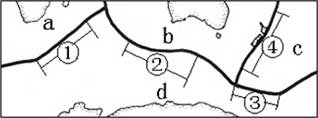Not only did the students ask for changes in the list of required subjects,but they also demanded the right to choose their courses according to their own taste and future needs.No more fixed programs,no guidance from educators and professors.All they wanted was to get their degree as fast as possible and go to work.
Although the educators didn’t all agree;a majority recognized that time had indeed changed and that education should perhaps adapt itself to the realities of modern society.Colleges and universities revised their programs to include a large number of specialized courses in business,nursing,engineering,and other professional fields.In the 1960s they also added courses requested by the students because they considered them“relevant(相关的)”(Women Studies,Revolution,or Black History)or useful(glass blowing,infant care,slow running,or family life).The students were granted the right to choose their courses as they wished.Many traditional subjects had to be dropped,including history and foreign languages;the liberal education courses that were still useful were often neglected(忽视)by the students,who didn’t feel like working hard to learn something that was not required for graduation.
Whether the revised programs have helped college graduates to find employment quickly is not clear.But after fifteen or twenty years of experimentation,they have raised a lot of criticism.Some of it comes from the graduates themselves,who discover that their practical knowledge is neither deep nor flexible(灵活的).As soon as they progress to higher positions,they find that they need management training and more study in their own field.Besides,they feel disabled by their lack of general knowledge,for example,by their ignorance of the language and culture of the foreigners with whom they are doing business. Most of all they suffer from their inability to use English,their own language,easily and properly.
小题1:The students also demanded ,besides a change of program.
A.the right to choose their university
B.the right to choose their professors
C.the right to choose their degree
D.the right to choose their courses小题2:What was the reaction of the colleges towards the students’demand?
A.All the educators agreed with them.
B.None of the educators agreed with them.
C.A few educators agreed with them.
D.A few educators disagreed with them.小题3:Who is it that criticized the new system of education?
A.Graduates
B.Parents
C.Employers
D.Educators小题4:In the opinion of the critics,the main problems are .
A.the general knowledge is too much
B.the practical knowledge is impractical
C.they learned too much useless knowledge
D.they are not able to use their knowledge effectively
小题1:D
小题1:D
小题1:A
小题1:B
小题1:根据文章第一段第一句可知,学生要求的权利是自己选择课程的权利。
小题1:根据文章第二段第一句可知,绝大多数人(majority)同意他们的要求,只有少数人不同意。
小题1:从文章最后一段可知,毕业生本身意识到了这种教育机制的不足。
小题1:根据文章最后一段第三句可知,这些毕业生发现自己的实际知识既不深入又不灵活。

